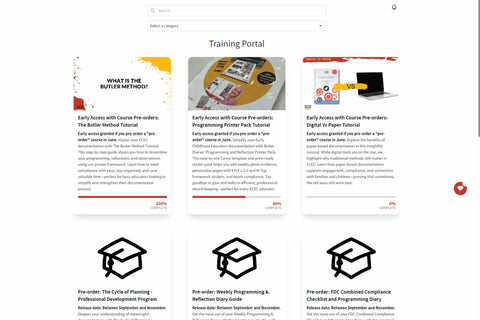Unfortunately, some customers can turn out to be more trouble than they’re worth. These individuals will waste your time by constantly changing their mind, asking you to do things they could easily do themselves, acting like they are the qualified tradesman, or simply not knowing what they want at all. Dealing with these types of customers can eat up your day, preventing you from getting important work done or spending time with your family! We unpack the warning signs of time wasting customers and the dos and don'ts of dealing with them.
If a customer is not willing to pay your rate, they probably aren’t worth it
It’s always hard to turn down work when you need it, but a time-waster isn’t worth the headache. The first step is identifying one: Customers who seem only focused on the cheapest offer, don’t seem to care about the quality of what they get or are only interested in whether you can beat another quote.
These are often all warning signs for more trouble down the road. Even if you concede and reduce your quote, you will often find these customers make excuses for not paying on time, find things to complain about to avoid paying or get the price reduced, and try to get additional work included for free once you are there. This can all end up costing you more than the job was worth.
Do
Be firm on your rate and have a clear conversation about why your rates are what they are. Be clear on the deliverables and how these are different from cheaper competitors.
Don't
Fall into the trap of price-beating just to get work, this is not sustainable, and you may end up with customers who aren't worth it in the end.
Some customers don’t know what they want
Everyone has a customer from time to time that is more than happy to waste your time. To help reduce the chances of wasting your time, it’s always important to listen carefully to what your customer wants. Additionally, some customers will keep requesting changes even though you are providing them with exactly what they asked for the first two times.
If this happens, you have every right to charge them for an additional visit if that is in your contract. What many don’t realize is that some customers will ask questions over and over again or just keep talking even though they have no intention of paying you. This often occurs when they are asking you questions they could easily answer themselves by researching on the internet.
Do
Take the time to listen and provide your expert knowledge. Sometimes customers need support understanding how to achieve their desired result.
Don't
Don't go around and around in circles for free, and don't be afraid to add a clause that charges for reworks. A few amendments and supporting your customers achieve their desired result is great, but drawing up multiple free plans and revisiting the job over and over just eats into your time.
The "we aren't ready yet"
Most Tradies have dealt with many of these in their time. Customers calling for quotes for jobs that aren't ready yet or they are just trying to get an idea of costs to see if the work is viable with their budget... or the worse type, simply just collecting quotes to request price matches. Unfortunately, many people do not consider the time Tradies invest in quoting and how much time is wasted on quotes such as this. However, the "we aren't ready yet" can also turn into work down the line, so this one is tricky to navigate.
Do
Implement systems that reduce the amount of time you spend quoting. A swift and efficient quoting system will ensure you aren't wasting too much time on these quotes. It is worth quoting these jobs, we've seen some come back a year later accepting the quote. Do make sure you have a clear clause that quotes are valid for X amount of time and may need to be adjusted outside this time so you do not get stuck completing a job that has outdated material costs considered.
Don't
Spend too much time reworking these quotes. Customers who are looking for quotes for their future financial planning can definitely turn into work, however, clients who are asking for multiple reworks for free may just be using you to experiment with pricing and quote options for competitors. As mentioned earlier, it is worth noting that additional reworks are charged so your time is valued by your customers and you don't get stuck in an endless circle of reworking.
We don't need a site visit, we just want a quote
This is a big warning bell, a time-waster doesn't want you visiting and taking the time for design conversations or accurate measurements. If they just send you the measurements and decline any further conversation, they are most likely just collecting quotes to use as a reference for a competitor. Even these quotes take time and can be very frustrating.
Do
Have a clear quoting process that can be shared with these customers, including the reason for on-site visits.
Don't
Respond poorly as sometimes customers just do not understand the complicated consideration that goes behind quoting for works.
Something just feels off
Sometimes there isn't something specific that is said but something just feels off. You have a feeling in your gut that something is off about this customer or job.
Do
Trust your gut! You know the industry and you have experience with a diverse range of people. If your gut is telling you no, it is probably right.
Don't
Ignore your gut feeling without spending time ensuring you have a complete understanding of the client and the work.
More 'Do's' to save you from time wasting customers!
Some ways you can identify time wasters and deal with them appropriately.
1. Questions to ask to spot time wasting customers
- Do you have a budget in mind? You will often get an idea of how seriously a customer is taking a project with this question. It can also help you identify unrealistic customers to avoid the time wasters.
- When do you need the job done? This will help you decide if the customer has specific plans for their project or is just shopping around.
- Have you received any other quotes? You will be able to decide where you stand, a customer who already has multiple quotes is probably just looking for the cheapest price. You may also get an idea of the cost of the project prior to attending.
2. Giving a price guide can save you from quoting time wasting customers
Give a price guide over the phone when you are unsure if the customer is only price hunting. This will immediately eliminate time wasters and save you from an on-site visit.
3. Be aware of the language of time wasting customers
Observe the customer's language and the questions they ask, are they focused on quality and having the project completed correctly, or are they all about price?
4. Charge a call-out fee.
There is no faster way to eliminate time wasters.
Need help tracking your customer communication so you can save your business time and money? Check out our Construction Diaries, the diaries for every Trade.



















